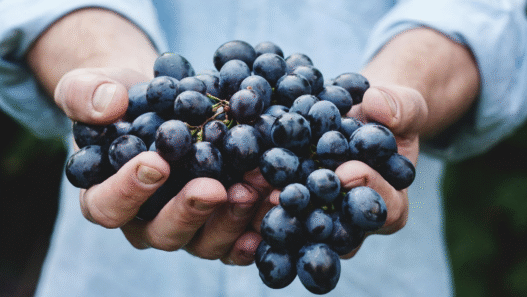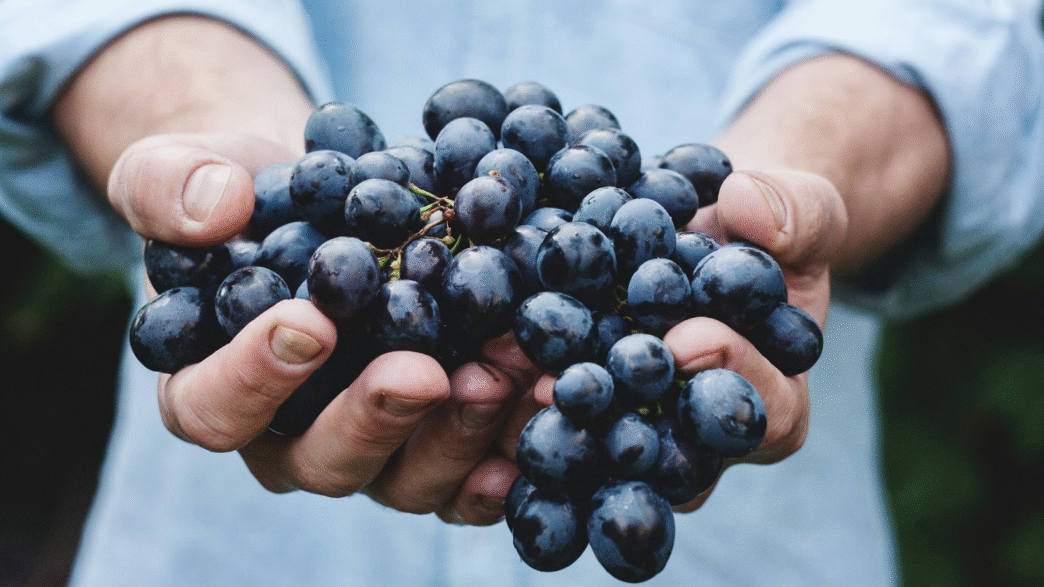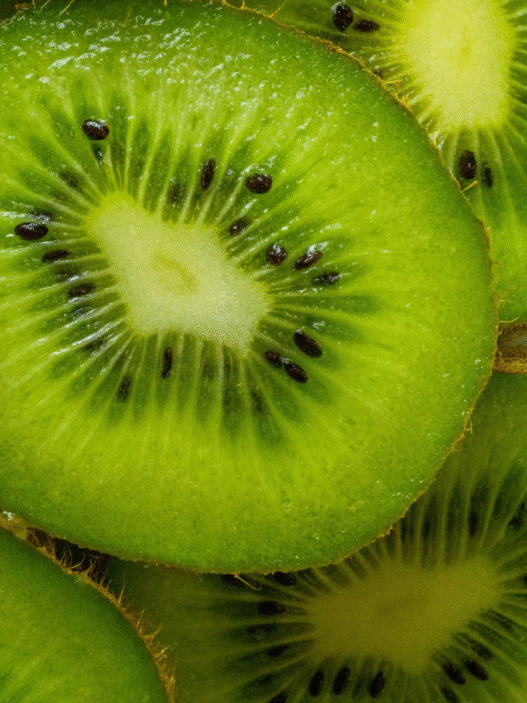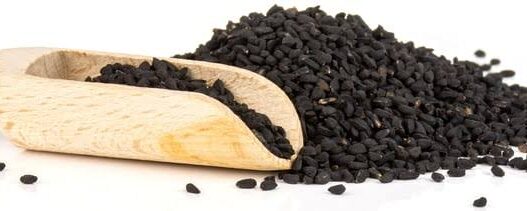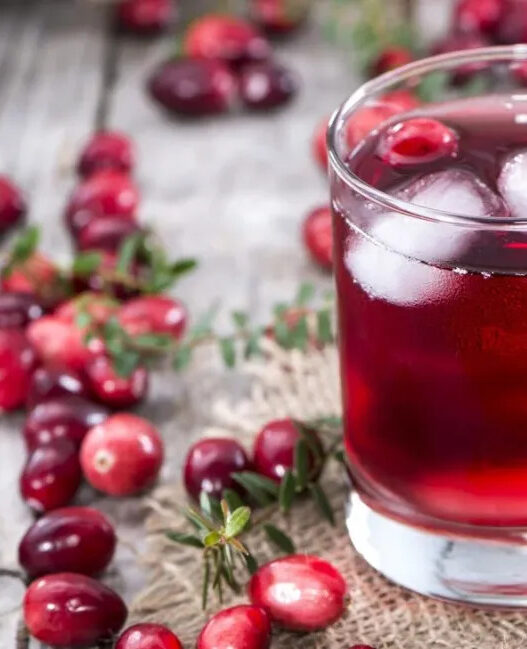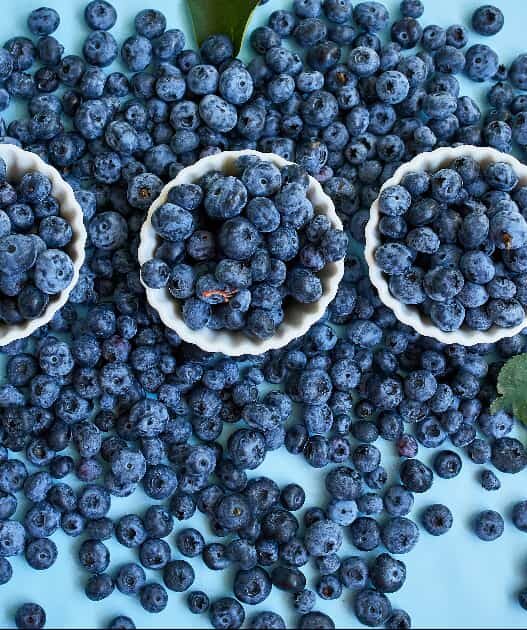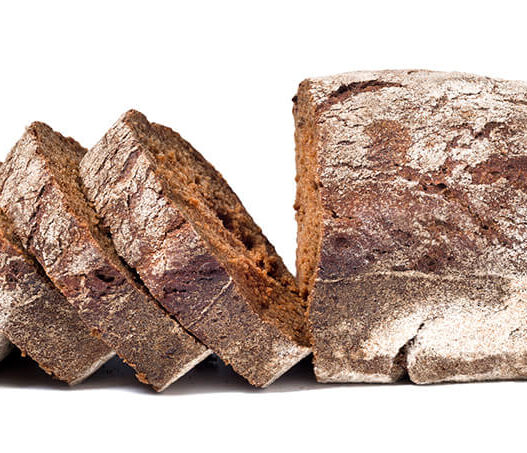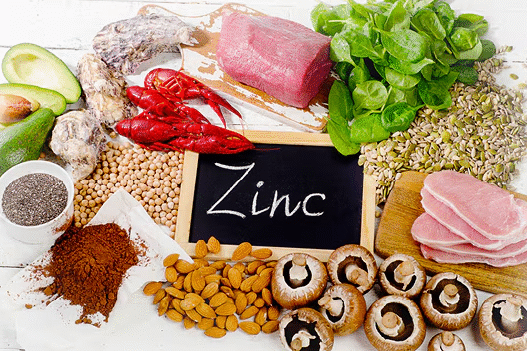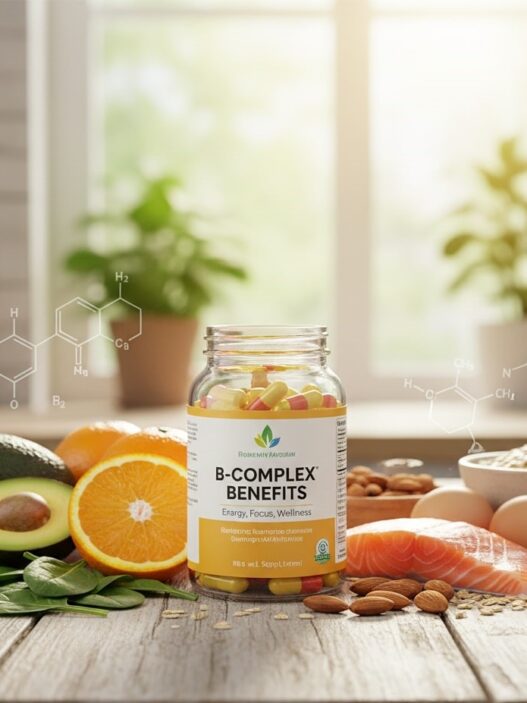Grapes are the berries of the Vitis genus (most commonly Vitis vinifera). Their skins, pulp and seeds are packed with bioactive compounds especially polyphenols. Fresh grapes are typically eaten whole. They’re also the starting point for raisins, juice, and wine, each with a different polyphenol profile due to processing.
Nutritional facts
About 69–80 kcal, ~18–19 g carbohydrate (mostly natural sugars), ~0.7–0.9 g protein, ~0.2–0.3 g fat, ~3 mg vitamin C (~3% DV), ~220 mg potassium (~5% DV), small amounts of calcium, iron, and vitamin K; negligible sodium. Grapes are ~80% water and provide ~0.7–1 g fiber per 100 g.
(Values vary by variety and ripeness.)
Glycemic impact
Whole grapes generally fall in the low-to-medium glycemic index range, with reported GI values roughly ~45–55, and a typical glycemic load per 100 g around 7–9, helpful context for people monitoring post-meal glucose. GI can vary by cultivar and test method, whole fruit, eaten with meals and fiber, blunts spikes compared with juice.

Here are some health benefits of grape you should condsider:
Cardiometabolic health (heart, lipids, blood pressure, diabetes risk)
Randomized and pooled analyses indicate small but measurable cardiometabolic benefits from grapes and grape products (especially whole fruit).
Randomized controlled trials (RCTs) found grape products modestly lowered total and LDL cholesterol, effects on other markers were less consistent.
Another meta-analysis concluded whole grape products produced a small reduction in systolic blood pressure, with low certainty and little effect on other endpoints.
Observational cohorts associate higher intakes of certain fruits including grapes/raisins with lower risk of type 2 diabetes. Mechanistically, polyphenols may improve endothelial function and reduce oxidative stress.
Brain And Cognitive Function
Systematic reviews of human trials suggest grapes and grape-derived polyphenols can acutely and chronically enhance aspects of cognition (e.g., executive function, processing speed, spatial memory), though heterogeneity in dose and formulations limits firm conclusions.

A systematic review reported positive signals across multiple RCTs; newer placebo-controlled work with standardized grape extracts in healthy older adults also reports improvements in short- and long-term cognitive measures.
Gut Microbiome
Grape (poly)phenols interact bidirectionally with gut microbes: microbiota metabolize grape polyphenols into bioactive compounds, and, in turn, grape intake can shift microbial composition and activity toward a profile considered beneficial (e.g., increased short-chain fatty acid producers).
Reviews and emerging human data document these microbiome-linked effects, which may mediate downstream metabolic and vascular benefits.
Antioxidant And Cellular Signaling Effects (resveratrol & friends)
Resveratrol present in grape skins has been studied extensively in cells, animals, and humans for antioxidant and anti-inflammatory actions and effects on cell signaling pathways.
Clinical evidence for disease outcomes remains mixed and dose-dependent; comprehensive reviews of resveratrol trials underscore promise but also variability and the need for standardized dosing and better endpoints.
Whole grapes provide many polyphenols beyond resveratrol that likely act synergistically.
Weight loss and body composition:
For weight management, grapes are a low-energy-density, water-rich whole food that can replace higher-calorie snacks. Large prospective cohort research suggests that higher intakes of certain fruits are linked with less weight gain over time; in one umbrella assessment, grapes ranked among weight loss fruits in free-living adults (on the order of a few tenths of a kilogram).
Quick FAQs
Are grapes “high sugar”?
They contain natural sugars but come with water, fiber, minerals, and polyphenols. Within a balanced diet, their glycemic load is modest and lower than many refined snacks.
Any cautions?
Grape supplements/extracts (e.g., concentrated resveratrol or grape seed extract) are not the same as the fruit; supplement evidence and dosing vary, and interactions are possible. Whole fruit is the safer default; consult a clinician before high-dose supplements, especially if you take medications.

Conclusion
Grapes are more than a sweet snack: they’re a nutrient-dense, polyphenol-rich fruit with consistent though modest evidence for supporting heart and vascular health, emerging support for cognitive benefits, and plausible microbiome-mediated effects.
For weight loss, grapes help most when they replace calorie-dense foods and contribute to an overall high-fruit, high-vegetable pattern; supplements alone have not shown meaningful fat-loss effects in rigorous trials.
If you enjoy them, a cup or two of whole grapes, ideally alongside proteins or nuts and within your calorie needs is a delicious, evidence-aligned way to nudge your diet toward better cardiometabolic, brain, and gut health.






